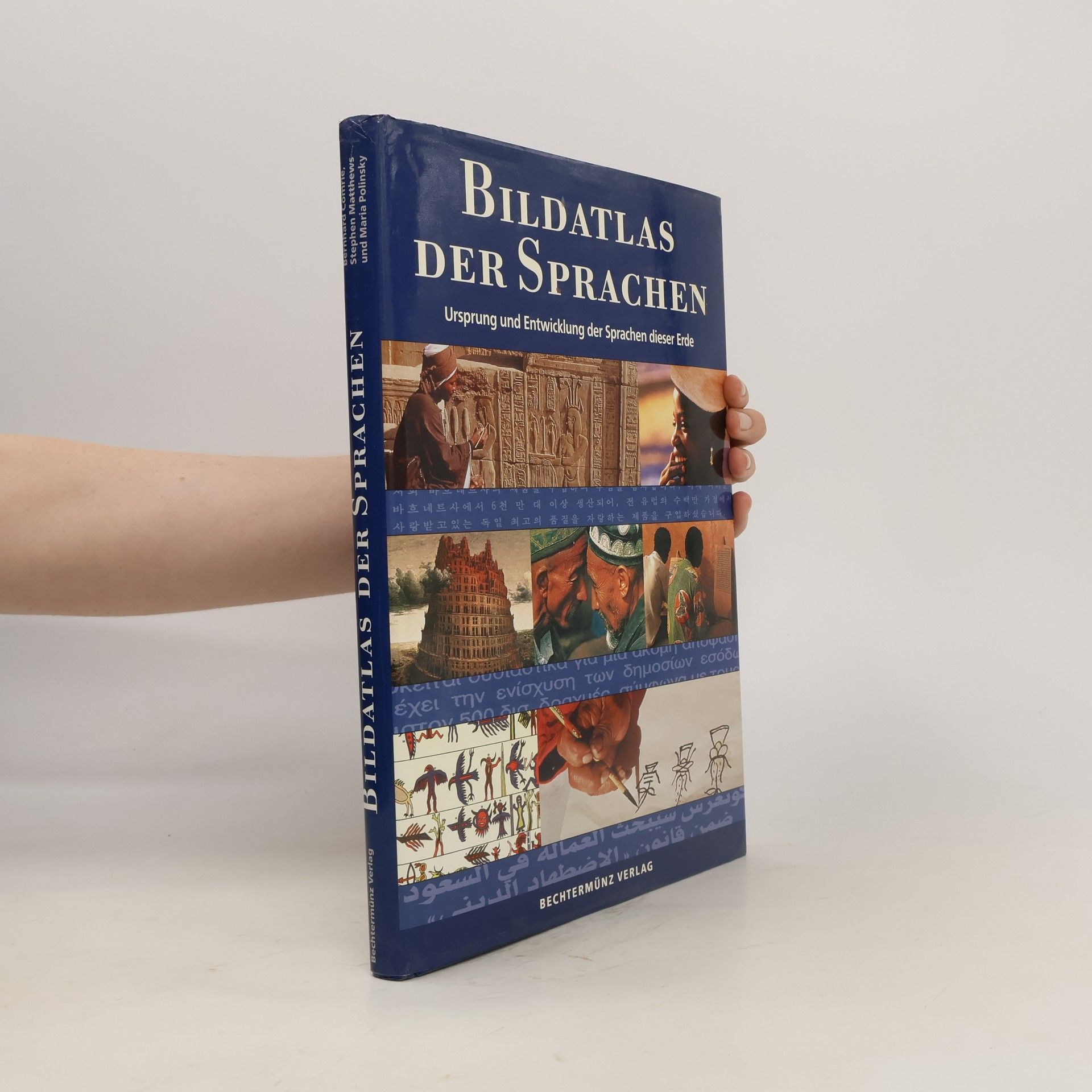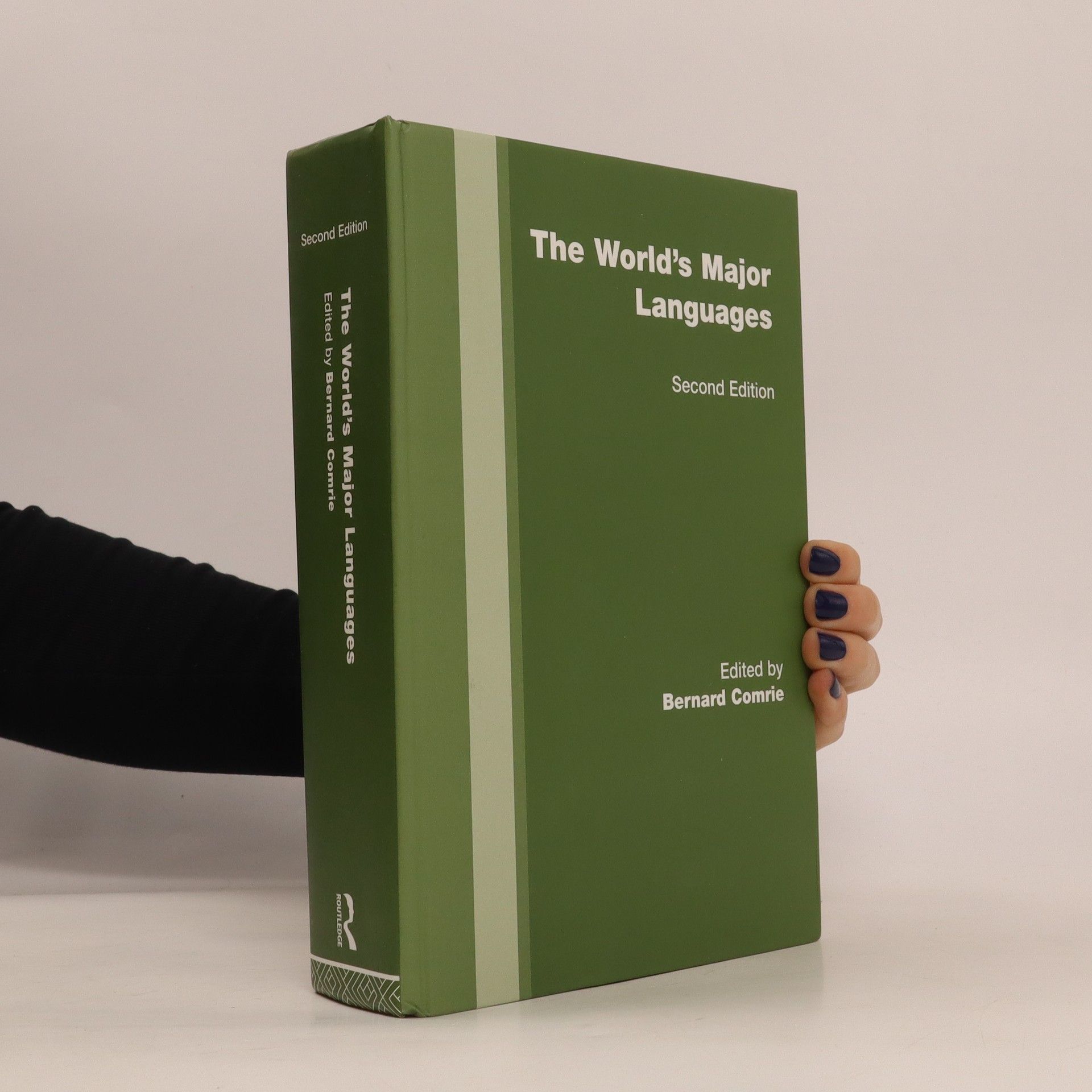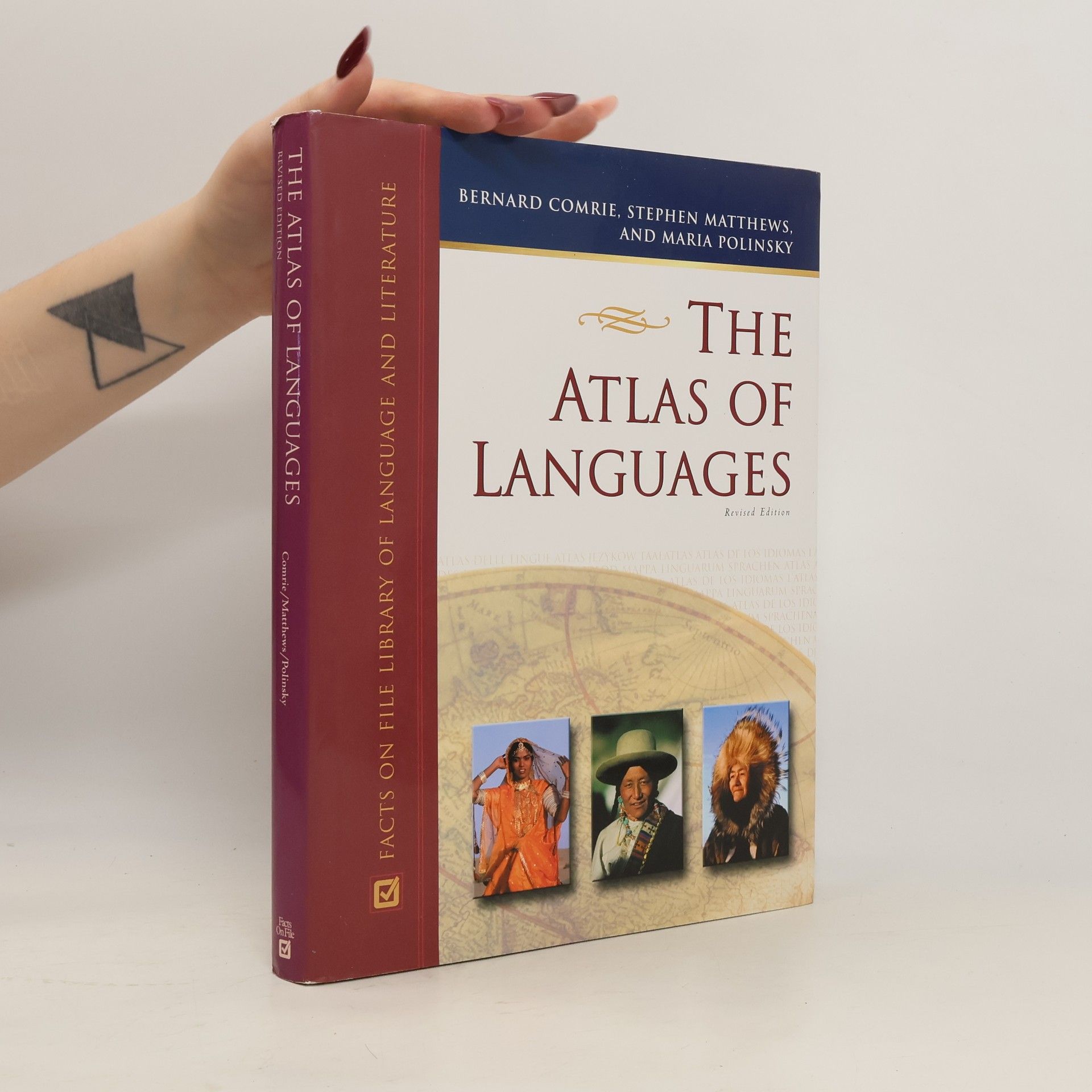A definitive guide to an almost extinct North Andamanese language. Originally spoken across the northern Andamanese Islands in the Bay of Bengal, the Akajeru language is spoken today by only three people. A Grammar of Akajeru describes this unique grammatical system as it was reported at the turn of the twentieth century. Based primarily on research conducted by Victorian anthropologists Alfred R. Radcliffe-Brown and Edward Horace Man, this book offers a linguistic analysis of all extant Akajeru material as well as the scant documentation of adjacent dialects Akabo and Akakhora. This volume includes a grammatical sketch of Akajeru, an English-Akajeru lexicon, and a comparison between Akajeru and present-day Andamanese.
Bernard Comrie Pořadí knih (chronologicky)







The world's major languages
- 928 stránek
- 33 hodin čtení
This book describes the most interesting features of over 50 of the world's major languages and language groups.
Atlas jazyků: vznik a vývoj jazyků napříč celým světem
- 224 stránek
- 8 hodin čtení
Graficky přehledně zpracovaný atlas provází bohatstvím světových jazyků, seznamuje s jejich geografickým rozložením a upozorňuje na jejich příbuzenskou provázanost. Úvod výpravné publikace je věnován otázkám vzniku, vývoje a šíření jazyků. Další kapitoly zkoumají jazykové rodiny a jazyky z hlediska zeměpisných oblastí světa, uvádějí jejich základní charakteristiky a příbuzenské vztahy. V závěru se publikace zabývá původem a vývojem písemných systémů a problematikou přežití jazyků a jazykové pestrosti.
Tense
- 152 stránek
- 6 hodin čtení
Exploring the diversity of tense systems, this book delves into how different languages express time and aspect. Bernard Comrie examines the structural variations and unique features of these systems, offering insights into linguistic patterns and their implications for understanding human communication. Through a comparative approach, readers gain a deeper appreciation of the complexities and nuances in the ways languages handle temporal expressions.
The Atlas of Languages
The Origin and Development of Languages Throughout the World
- 224 stránek
- 8 hodin čtení
An extremely authoritative writing style, full-color illustrations, and maps combine in this ultimate exploration of the evolution of languages.
Bildatlas der Sprachen
Ursprung und Entwicklung der Sprachen dieser Erde